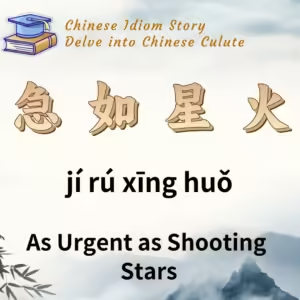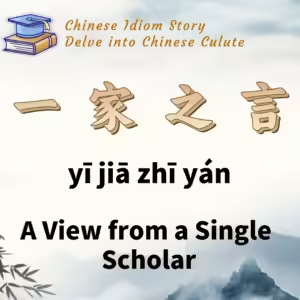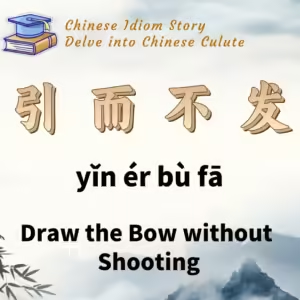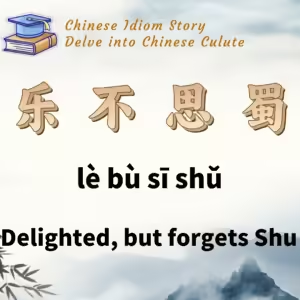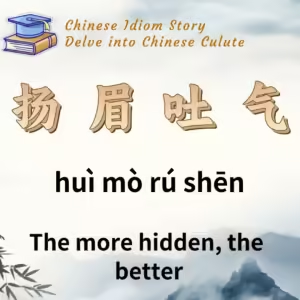
Chinese Idiom: 强弩之末 (Qiang Nu Zhi Mo)
English Translation: The Last Stage of a Strong Crossbow
pīn yīn: qiáng nǔ zhī mò
Idiom Meaning: This idiom metaphorically describes a situation where once-powerful strength has diminished and can no longer exert influence or effect. “强” (strong) refers to great power; “弩” (crossbow) is an ancient weapon for shooting arrows; “末” (end) refers to the latter stage of an arrow’s flight.
Historical Source: The idiom originates from Records of the Grand Historian (Shiji), specifically in the biography of Han Changru, and is also found in the Book of Han (Han Shu) in the biography of Han Anguo.
Idiom Story:
During the Western Han Dynasty, the Xiongnu frequently invaded the borders, posing a significant threat to the Han dynasty. The Xiongnu were an ancient nomadic people who roamed the region north and south of the Yin Mountains. At the time of the establishment of the Han dynasty, the Xiongnu were in a stage of slavery, and their slave owners often waged wars against neighboring tribes, plundering their populations and wealth. At the height of their power, the Xiongnu controlled vast territories, stretching east to the Xing’an Mountains and the Liao River, west to the Tianshan and Qilian Mountains, and south to present-day Hebei and northern Shanxi, with over 300,000 cavalry.
After conquering nearby tribes, the Xiongnu raided the long borders of the Han dynasty for years. Initially, before Emperor Wu ascended the throne, the Han dynasty adopted a policy of marriage alliances to appease the Xiongnu; Liu Bang had even married his royal daughter to the Xiongnu chieftain. However, after Emperor Wu took power, he aimed to change this approach, relying on existing strength to counter the Xiongnu and achieving several victories against them. By 135 BC (the sixth year of Emperor Wu’s reign), the Xiongnu were compelled to send envoys to request another marriage alliance.
Emperor Wu convened his ministers to discuss countermeasures. General Wang Hui, who had previously served in the border regions and was knowledgeable about the Xiongnu situation, opposed the idea of a marriage alliance and advocated for military action instead. He argued, “In the past, the court married a princess to the Xiongnu chieftain, yet they violated the treaty and invaded our borders. It would be better to send troops to strike them instead.”
However, the Minister of Justice, Han Anguo, proposed continuing the marriage alliance policy. He reasoned, “The Xiongnu are overconfident in their military strength and lack a fixed home base, making them difficult to conquer by force. If we send a large army over thousands of miles, they will be weary, while the Xiongnu can rest and wait for us.” Han Anguo emphasized, “Even the strongest crossbow can only shoot its arrow so far; it cannot penetrate a fine silk cloth from Lu.” The reference to “鲁缟” (Lu silk) indicates that although our military might be formidable, after a long journey, it would be like a powerful arrow that, at first, shoots with great strength but eventually may not even pierce a thin silk. It is akin to a strong wind that may lift high but ultimately cannot even stir a light feather.
Thus, it would be better to pursue the marriage alliance. Most ministers agreed with Han Anguo’s reasoning, and Emperor Wu reluctantly accepted the marriage alliance for the time being.

